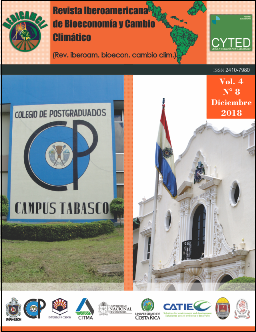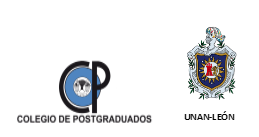Evaluation of the impact of the pillars of SSAN food and nutrition security and sovereignty in the families of the la pavana community, Somotillo municipality-2014
DOI:
https://doi.org/10.5377/ribcc.v4i8.6647Keywords:
Availability, Access, Consumption, Biological use of foodAbstract
The study allows to identify the situation of Food Security (Biological Bioeconomy) ; availability, access, consumption and biological use of food from rural families in the La Pavana community in the municipality of Somotillo. The research is descriptive, interviews were conducted and 90 semi-structured surveys were conducted. The results show that 21% of the families have their own land for the production of crops, families do not have a variety of food all year round, there is no productive diversity. The food pattern is made up of 21 foods for the department of Chinandega, only 9 foods are consumed in the families' diet: coffee, sugar, salt, oil, chicken, corn tortilla, beans, rice and eggs. The meal time according to their income and because these are low 13% make a meal time, 28%, two times and 59% consume their food three times a day. 41% of families are in critical failure of food consumption, 51% is insufficient due to low consumption of fruits and vegetables demonstrating a deterioration in health and nutritional status affecting the biological use of food, evidencing a 3% of malnutrition of children in the community, influences the presence of respiratory and diarrheal diseases with 26% and 32%. The average family income is 2.60 dollars per day, managing to cover 17.27% of the cost of the urban basic basket and 21.59% of the rural basket.
Downloads
1234
HTML (Español (España)) 0
Published
How to Cite
License
Copyright (c) 2018 Rev. iberoam. bioecon. cambio clim.

This work is licensed under a Creative Commons Attribution-NonCommercial-ShareAlike 4.0 International License.
Copyright © Rev. iberoam. bioecon. climate change (Graduate School and UNAN-León, School of Agricultural and Veterinary Sciences / Department of Agroecology / Center for Research in Bioeconomy and Climate Cahnge (CRByCC).







